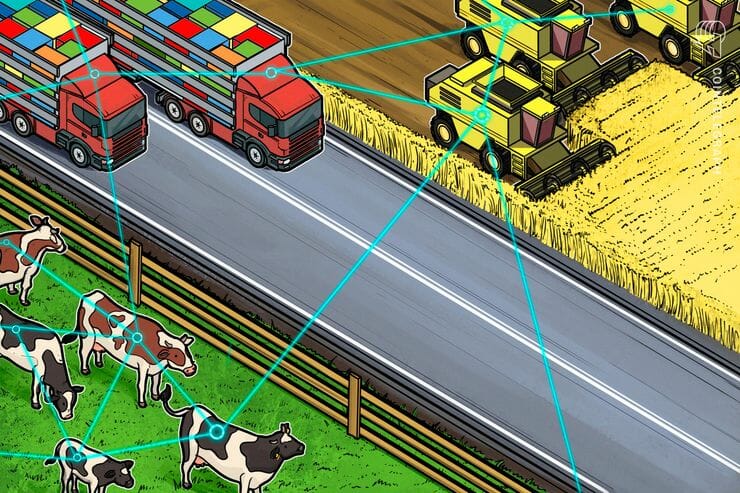
Blockchain is starting to show the potential to disrupt established industries. To date, achieving real disruption has been challenging, especially due to funding issues. Even recent and innovative companies, operating in the field of the sharing economy, such as Airbnb and Uber have let us down, regarding their potential for disrupting a capitalist system that is broken. These companies began almost one decade ago, with “positive” storytelling, but were quickly taken over by corporate interests and a quick desire to scale, becoming more into money then the real needs of people and/or sustainable growth. This is not only “their fault”. In order to operate, any business model which is based on the development of a digital platform needs to scale very quickly to become profitable and take advantage of the network effect. Some of these Goliaths, validated in billions of dollars, are not even profitable. But the funding machine holding them together, boosts their “value” to unimaginable sums, to legitimize the initial seed investment ( In the meanwhile, by the way, personal fortunes are made). And there we have, a unicorn!
Blockchain and Cooperatives
However, this is finally starting to change. The most interesting examples of what is happening that might truly make a difference comes from examples of cooperatives building collaborative links with blockchain. Cooperatives are organisations that are owned by everyone within the business – such as by the workers or the customers, or even both. Any company decisions that need making are decided on through democratic means – and consensus is built, rather than a majority. One primary example of a business that has integrally built in cooperative principles is John Lewis – while it may not be classed as a cooperative per se, the employees are all considered partners, and everyone gets a vote on board members, and can receive dividends. In the UK, the Co-Op is a more obvious example of a cooperative in action. But where does blockchain come in?
Blockchain technology can be used to ensure that people associated with the company get a better deal, and/or equity. In some cases community shares have been introduced, and in other cases, sweat equity has been offered – offering services at an early stage is paid back later at a profitable stage. A recent example of a co operative using blockcahin is Dairy Farmers of America (DFA), a U.S. national milk marketing cooperative, has teamed up with food fintech startup ripe.io to pilot a blockchain-powered project aimed at improving the food supply chain.

Another example of a company that is utilising blockchain to manage some of this is Resonate. Resonate is a cooperative which is a music streaming platform. It was developed using blockchain technology, and in doing so a better deal is provided to artists. The model adopted is known as “stream to own”. Instead of paying a monthly subscription, a small amount is paid each time a track is played, and eventually after the track is played enough times it becomes the person’s to download. It can be seen that there are very obvious differences between this type of platform, and one of the market leaders, Spotify. This aside, Resonate works to cooperative principles, and the organisation was built by volunteers, with supporter shares issued to help in raising money. Resonate is also working with a blockchain technology company, RChain to put in place a Resonate token, and this helps to safeguard the financial position. These types of developments show how blockchain can be integrated into business solutions to help challenge established industry players, potentially disrupting industries in the future.
Challenging the Advertising Economy with Blockchain
Meanwhile, blockchain is even being seen to start to challenge Google’s advertising economy. Google has built its business through a reliance on the fact that consumers are willing to share a lot of information about themselves – and this can then be sold to ensure that companies get the views they want when they purchase advertising. Both Google’s very successful AdWords, and Facebook’s advertising platforms have been extremely successful utilising such an approach. However, it is believed that blockchain could now have in impact on disrupting in this area.
Advertising became the economic driver of the internet, but the idea that we are all paying the free services of Google and Facebook, by giving away our data that is then sold to to third parties, is now being challenged. People are increasingly more aware of that, and a blockchain based platforms might soon offer solutions which are based on tokens.
Blockchain technology use differs to the way in which Facebook, Google and other Goliaths build their solutions in that the former helps to bring about trust. This is because the technology utilised is a distributed ledger. Quality is built in to the system automatically, which means that people can trust and rely on what they are being offered, and negative outcomes can be avoided. This means that advertising platforms are likely to be challenged – particularly given the backlash against companies like Facebook due to data scandals such as in the case of Cambridge Analytica.
Instead of the “old fashioned” model of advertising described above, it is increasingly likely that models may be based on tokens, rather than scooping up as much data as possible about people and selling it on to third parties. The type of infrastructure that is being built drives a level of collaboration with incentives that can move away from this model, adding value to all, and not just to the massive company that owns the platform – as in the case of Google and Facebook, as just two important examples.
A example of this is what BitClave has been doing.This company has envisoned a Consumer Activity Token that consumers earn by adding their data to the blockchain. When they perform searches through BitClave’s decentralized search engine, businesses that want to reach them will have to compensate them.
It is early days, but the models highlighted above, indicate that blockchain is likely to bring about disruption to well-established business models, as well as to ways of working within organisations. While more work is yet to be done, initial indications would seem to show that there is likely to be a significant success in this area moving forward.
If Google democratized access to knowledge, and Facebook, the access to social connection, now, with blockchain technology, the same thing might be just about to happen … with money.Are we finally reaching the age of small power, where people empower themselves as well, in terms of money? Or will the sector be quickly corrupted and taken over by corporate interests, or entrepreneurs moving astray from their initial values?
Let’s see and be active to lead the way to a better and fairer world to all.

Maria Fonseca is the Editor and Infographic Artist for IntelligentHQ. She is also a thought leader writing about social innovation, sharing economy, social business, and the commons. Aside her work for IntelligentHQ, Maria Fonseca is a visual artist and filmmaker that has exhibited widely in international events such as Manifesta 5, Sao Paulo Biennial, Photo Espana, Moderna Museet in Stockholm, Joshibi University and many others. She concluded her PhD on essayistic filmmaking , taken at University of Westminster in London and is preparing her post doc that will explore the links between creativity and the sharing economy.



























